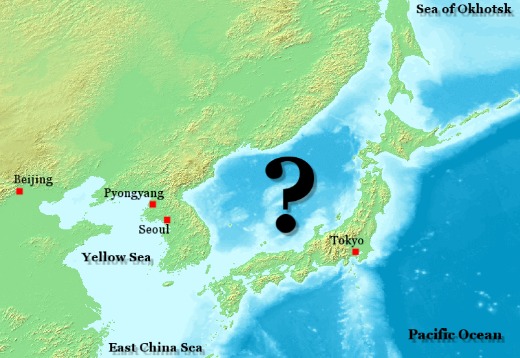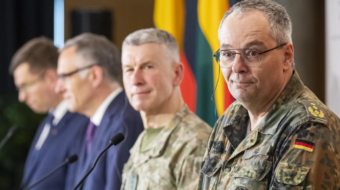
The United States and its ally the Republic of Korea (South Korea) are holding naval exercises in the Yellow Sea, on the west side of the Korean Peninsula, Nov. 28-Dec.1. These maneuvers, long planned but for which a date had supposedly not been set, come after the shelling by the Democratic People’s Republic of Korea (North Korea) of Yeonpyeong Island, resulting in the death of two South Korean military personnel and two civilians.
Yeonpyeong Island is only 7.5 miles from the North Korean coast, and is also close to the border between the two Koreas and the South Korean capital, Seoul. The North Korean government says it opened fire in response to South Korean artillery practice.
This situation is dangerous to the peace and stability of the whole region. Things could quickly escalate. The U.S. government needs to pull back from the brink of a possible disaster, and for all parties to seek a peaceful settlement.
There is no justification for the unnecessary deaths on Yeonpyeong Island. The loss of life is tragic and wrong. It’s the first time North Korea’s actions have resulted in civilian deaths since the war, a dangerous precedent.
The U.S.-South Korean maneuvers are billed as a “response” to the shelling incident, but such responses are not new. Last week, similar maneuvers took place on the other side of the Korean peninsula. They had been scheduled to take place in the Yellow Sea, but were moved to the other side as a response to a Chinese demand. As recently as this past summer, similar maneuvers took place.
Since a 1953 truce ended the active fighting in the Korean War, there have been other episodes, on land and sea, of shelling and hostilities. In the spring of this year, there was an incident involving the sinking of a South Korean warship, the Cheonan, in which 46 sailors were killed. South Korea blames the North for the sinking and the North denies it.
However, this latest series of incidents seems to constitute an escalation of the danger of a full scale clash.
U.S. corporate media spin on these events is unhelpful, to put it mildly. North Korea is portrayed as a rogue state whose leaders are crazy and whose behavior is aggressively irrational. But the bizarre fact is the Korean War has never been formally ended. So North Korea on the one side, and South Korea, plus the United States and the United Nations are on the other. And technically all are at war with each other still.
Americans tend to forget this, but in the two Koreas it is not forgotten, and adds to the tension in the area. Military maneuvers near a country’s borders and coasts are one thing in peacetime; quite another when there is a suspended war.
Nevertheless, up to two years ago, there had been progress at least in normalizing relations between the two Koreas. During the presidency in South Korea of Roh Moo-hyun, a treaty was signed with the North in which the Yellow Sea was to be demilitarized and made into a joint fishing area. There was progress on trade and other matters also.
But with the election of Lee Myung-bak to the presidency of South Korea in 2008, things took a turn for the worse. Lee, the former mayor of Seoul, had initially promised to continue Roh’s détente policy, but, with the instigation and support of the Bush administration, turned to a sharply confrontational approach.
Bloodcurdling rhetoric and saber-rattling on any side does not help, either. For example, the head of the South Korean armed forces is quoted as swearing “a thousand fold revenge” for the people killed in the shelling of Yeonpyeong Island. North Korea issued a statement guaranteeing a “merciless counter-attack” that would “wipe out all enemies.”
The United States is sending a nuclear powered aircraft carrier, USS George Washington, into the Yellow Sea, which is also a form of saber rattling if there ever was one.
This saber-rattling may play well with respective domestic audiences, but it only serves to escalate the conflict, and runs the danger of it getting out of hand.
China opposes the maneuvers in the Yellow Sea (which also is partly in Chinese coastal waters) and is constructively trying to cool tempers and belligerent rhetoric in Pyongyang and Seoul. Chinese diplomats have been shuttling back and forth between the two Korean capitals in a search to find a way of deflating the high level of tension. China has called for a resumption of the six-party talks (among the two Koreas, China, Russia, the U.S. and Japan), which had until recently been dealing with the issue of North Korea’s development of nuclear capacity.
However, at writing, Japan, U.S., South Korea and North Korea have shown reluctance to go this route of negotiations, and the U.S. corporate controlled press is blasting China for not having taken action to suppress the North Koreans, a role China is simply not going to play.
Key to de-escalation is putting pressure for a negotiated settlement, in the context of the talks and any other format that shows a promise of defusing the present crisis.
More intermediate and longer-term demands should include the demilitarization of the waters around the Korean Peninsula, the denuclearization of both Koreas, and normalization of relations between the two Koreas and between North Korea and the U.S. A formal end to the Korean War is needed to achieve these aims.
The sanctions regime against North Korea is politically and morally wrong, and experience shows nothing good comes from such sanctions. Material assistance to North Koreans would do far more to defuse tensions than the present policy of sanctions.
Finally, the U.S. policy – that it has a right to “project power” and exercise military pressure in the China-Korea area – is as outdated as it is dangerous and wrong. It’s a Cold War relic. The Obama administration and Congress need to hear from all concerned that the U.S. needs a new policy of peace, mutual respect and denuclearization. The war hawks and others will be pushing, cajoling and lobbying for more and more belligerent responses. It’s critical for the government to hear strong voices for a peaceful resolution.
Photo: Map of Korean Peninsula and disputed name of sea. (CC)










